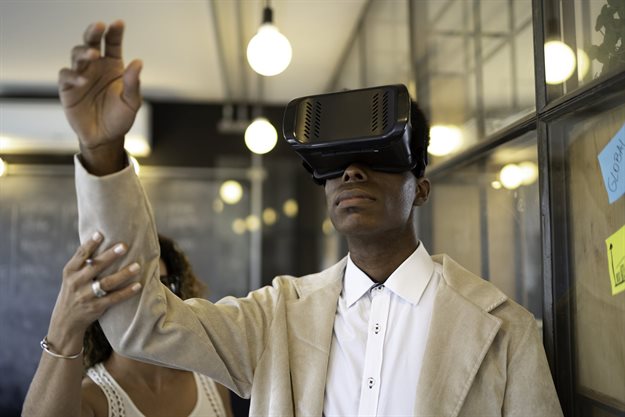Sub-Saharan Africa is at a point where new technologies such as artificial intelligence (AI) could present both opportunities and threats to development. But civil society, governments and international organisations need to make sure that everyone benefits from these technologies - not just elites.

Image source: Gallo/Getty
AI is, in principle, a strategy aimed at developing human-fed machine learning towards self-sustained learning systems. As the idea goes, mechanical systems should more and more govern themselves in applying practical solutions to complex problems, learning by their experiences to improve capabilities and their features.
It’s not yet clear whether such “grand expectations” in the human-technology-convergence will hold true or not.
Young people in Africa are among the most inventive and efficient “early adopters” of this ambiguous and nascent AI revolution. Even under difficult circumstances, there are many examples of new technological tools related to AI being adapted, or developed to suit local African realities and needs.
In some cases the change is coming “from above”, when global companies introduce something new. In other cases it is coming “from below”, when young people themselves create solutions.
What global players see in Africa
One example of innovation “from above” is Google’s first “Africa Artificial Intelligence lab”, opened in Ghana in April 2019. The global company is “betting big on Africa”. This is because of the continent’s young and ambitious workforce and the engineering talent that already exists in certain African universities.
Google also believes that in Africa, AI could show how it can contribute to development rather than just replacing employees with machines – a scenario that some people in the West fear.
The company has a “library” of tools and resources that anyone can use freely to build machine learning applications. The library and an example of what it has already produced is an app that allows farmers to diagnose diseased plants using a mobile phone.
AI could also present solutions for a range of other things. These include managing doctor shortages in rural areas, reducing costs in financial transactions or increasing the efficiency of logistics. The technology, if properly applied, could give Africa a great push towards meeting people’s needs more sustainably.
Other global players may follow Google into Africa on the basis of similar perspectives.
But people in many African countries aren’t just waiting for that to happen. They are innovating “from below” and starting new ventures using AI. Even children can take the initiative to improve daily life through sophisticated technology. This is what the example of a 12-year-old Nigerian coder shows.
Whether it’s from above or from below, technology adaptation and creativity lead to opportunities for employment and global export competitiveness. This should be remembered when considering Africa’s economic growth prospects.
Earlier this year the MIT Technology Review stated that “The future of AI is in Africa”. And last year Nature invited its readers to “look to Africa to advance artificial intelligence”.
But there are still too few AI researchers on the continent. Steps are being taken to address this. Recently the University of Pretoria in South Africa pointed out in a report that AI was an opportunity for growth, development and democratisation if properly implemented.
And at an upcoming AI EXPO Africa more than 700 representatives of AI enterprises and the data science community will be showcasing the growth of “high performance science” in Africa.
The flip side of tech
There is, however, another side to technology. It can present threats to democratisation.
The United Nations University has pointed out that “deep fakes”, or
the creation of artificial videos, voice recordings and data, could be used to emphasise existing ethnic and religious divisions and to attack nascent democratic institutions.
The university also mentioned misinformation through social networks to manipulate voter and political behaviour in favour of interest groups and those with access to technological knowledge. And it noted the use of AI “to lower the cost of violence by both non-state and state entities alike”. What needs to be done
As AI rises, so will the importance of these issues. The African Union should be watching the interface between positive and negative effects of AI, digitalisation and the technological revolution on the continent. So should national governments and civil society, as well as their bridging alliances like the Alliance for AI in Africa (A4AI). And youth organisations such as Earth Guardians Africa, which use advanced technology to protect natural resources and the environment, should be on guard.
This is both a question of legislative readiness and of practical tools which have to be provided to those in power – not generally any more, but context-wise, in the end, to be more effective, and grounded for those who need it most.
The emerging relationship between new technologies and Africa may be some of the most promising news for the continent. But only if developments “from above” and “from below” involve and satisfy the whole population. And only if they aren’t used to distort African democracy.
This article is republished from The Conversation under a Creative Commons license. Read the original article.



























